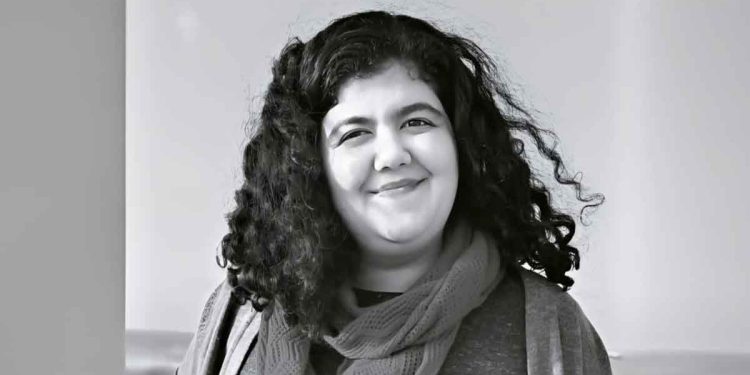Egyptian activist and translator Marwa Arafa, 32, faces a real threat to her life following the deterioration of her health in prison, where she has been held since her arrest in April 2020.
Her family reported that in mid-August she was transferred to a hospital after suffering a sudden fainting episode. She was diagnosed with a pulmonary artery clot, a sharp drop in haemoglobin levels, high fever, and numbness in the upper part of her body. Yet, after only one night, she was returned to her cell, left to confront her illness with only primitive means and the help of fellow detainees, who tried to assist her with an oxygen cylinder that quickly ran out, causing her condition to worsen again.
According to her family, Marwa can no longer walk unaided and struggles to breathe, while the Egyptian authorities continue to detain her without regard for her right to adequate medical care, placing her life at serious risk. Her mother added that her young daughter, deprived of her mother for more than five years, lives in painful isolation and desperately needs her mother by her side.
Marwa Arafa’s case exposes serious legal concerns, as she has spent more than five years in pre-trial arbitrary detention, renewed every 45 days, far exceeding the maximum limit under Egyptian law, which is two years.
This measure constitutes a violation of the principle of “no arbitrary detention” and strips legal provisions of their substance. Last July, she was referred to trial after a long delay, a step seen as an attempt to “legitimise” her prolonged detention instead of releasing her or dropping the charges against her.
The charges against Marwa (spreading false news, misuse of social media, joining and financing a terrorist group) are in fact linked to her humanitarian activities, which involved supporting the families of political detainees with food and clothing. Her prosecution therefore amounts to punishment for peaceful charitable work.
In addition, Marwa endures harsh detention conditions, including sleeping on a cold floor, being denied the right to work or study, and being prevented from sitting postgraduate exams or enrolling at university despite repeated attempts. All of this constitutes a violation of her basic rights as a detainee, including the rights to human dignity, education, and healthcare.
The continued detention of Marwa Arafa, given her deteriorating health, makes the Egyptian authorities directly responsible for her life. The repeated disregard of her family’s calls for her release, or at least the improvement of her conditions, reflects a worrying pattern in the treatment of female political prisoners, where imprisonment is used as a tool of harassment rather than a lawful punishment.



























